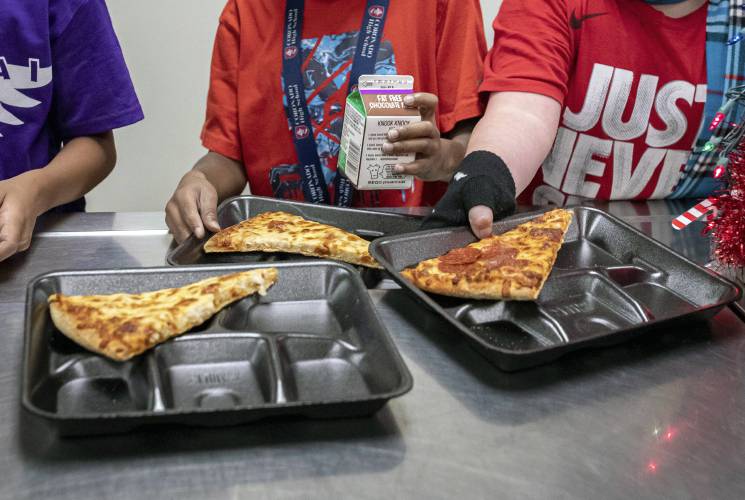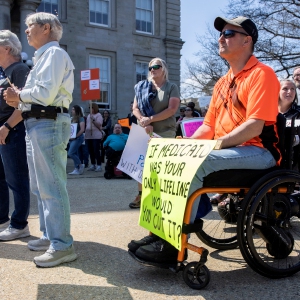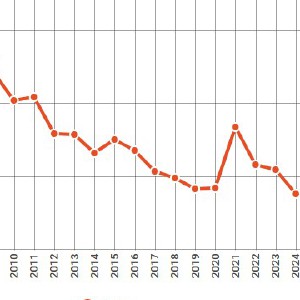Program aimed at expanding free, reduced school meals fails in House

| Published: 04-15-2025 6:29 PM |
The House of Representatives killed an amendment to the budget that would have automatically enrolled children who receive Medicaid into free and reduced school meal programs.
The effort failed last week by one vote, with 181 in favor and 182 against.
Children on Medicaid automatically qualify for free and reduced meals, but advocates argue that the paperwork required to enroll creates a significant barrier of entry for families. Local hunger relief nonprofit New Hampshire Hunger Solutions estimates that 10,500 Granite State children are currently eligible for discounted meals but are not enrolled.
“Families get a raft of forms at the beginning of the year, sometimes it gets lost, sometimes people don’t understand whether they’re eligible, sometimes they’re not eligible at the beginning of the year and they become eligible and they don’t know you can apply at any time,” Executive Director Laura Milliken told the Monitor after the vote. “Low-income families have a lot going on, so if we can do anything to reduce the administrative barriers, we really should.”
Earlier this legislative session, Hunger Solutions supported a bill to implement what’s known as Medicaid Direct Certification, a program through the U.S. Department of Agriculture that allows schools to access Medicaid data and automatically enroll children who receive Medicaid coverage in free and reduced meal programs. 43 states participate in the program.
The bill, which the House ultimately tabled, roused privacy and budgetary concerns from Republicans. The amendment evaluated on Thursday presented promising revisions as part of a Medicaid Direct Certification pilot program: For two years, families would have had the opportunity to opt-in to receiving free and reduced meals as part of the Medicaid application, so their data would not be shared with school districts without their consent.
During those two years, there would not have been a budget impact associated with the program, and the legislature would have had the opportunity to fully invest in the program or eliminate it altogether at the end of that timeframe.
“The program is automatically repealed two years after it starts, leaving it to future legislatures to decide on the merits of continuing using reliable, accurate data,” Rep. Hope Damon, a Croydon Democrat, explained on the House floor. “Hungry children do not learn efficiently… Perhaps you don’t want to be the people who voted not to feed food-insecure children who, through no fault of their own, are poor.”
Article continues after...
Yesterday's Most Read Articles
 Former superintendent of the year is resigning to become EMT amid rising political attacks on schools
Former superintendent of the year is resigning to become EMT amid rising political attacks on schools
 Unique fiberglass home in Hopkinton is changing hands
Unique fiberglass home in Hopkinton is changing hands
 ‘We honor your death’ – Arranging services for those who die while homeless in Concord
‘We honor your death’ – Arranging services for those who die while homeless in Concord
 Two of five Grappone auto franchises to be sold as part of family transition
Two of five Grappone auto franchises to be sold as part of family transition
 GOP lawmaker wasn’t fired over transgender bathroom comments, business owner says
GOP lawmaker wasn’t fired over transgender bathroom comments, business owner says
 From raising chickens to programming a VR game, Merrimack Valley High School students show off their senior projects
From raising chickens to programming a VR game, Merrimack Valley High School students show off their senior projects
Rep. Daniel Popovici-Muller, on the other hand, couldn’t shake fiscal concerns rooted in numbers associated with the original bill.
“I would like to thank my distinguished colleague for generously offering to only push the state towards bankruptcy two years from now instead of immediately, but I still think that we should stick toward moving toward prosperity instead,” the Windham Republican quipped.
In 2023, a legislative report released by a committee studying Medicaid Direct Certification estimated its implementation would indirectly cost the state $95 million more per year on education funding.
Milliken expressed disappointment at “coming so close and not get what we hoped.” She said Hunger Solutions will continue to push for Medicaid Direct Certification to make it into the Senate’s version of the budget.







 Baseball: Slow night at the plate costs Concord in loss to Windham, 3-1
Baseball: Slow night at the plate costs Concord in loss to Windham, 3-1 ‘It's like slow genocide’: Crowd rallies against proposed Medicaid cuts
‘It's like slow genocide’: Crowd rallies against proposed Medicaid cuts New Hampshire births fell to a modern low in 2024
New Hampshire births fell to a modern low in 2024
